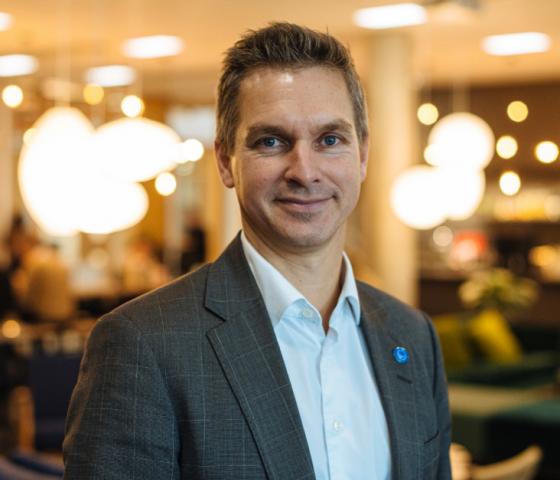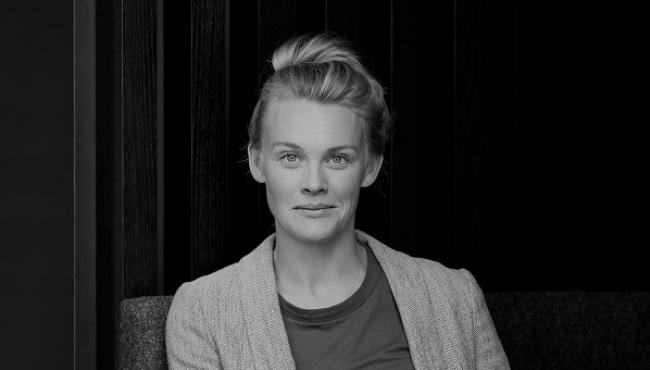
An interview with Rasmus Malmborg: "A Nordic model for sustainable cities"
As part of our recently launched book Predicting the Unpredictable – a Nordic Approach to Shaping Future Cities, written by Jonas Gustavsson, President and CEO and Helena Paulsson, Head of Urban Development, we conducted a number of interviews with experts relevant to the book’s subject.

This is an excerpt from the book "Predicting the Unpredictable - a Nordic Approach to Shaping Future Cities".

Rasmus Malmborg is a Senior Innovation Advisor at Nordic Innovation and works with the Nordic Sustainable Cities initiative. He holds an MSc in Human Geography from the University of Copenhagen, an MPH in International Health from the Nordic School of Public Health and a degree in Change Management from the BI Norwegian Business School.
Few people personify the Nordic perspective quite like Rasmus Malmborg. Born in Denmark, Rasmus spent a period researching public health in Sweden and now lives in Norway, where he works as senior innovation advisor at Nordic Innovation and the Nordic Sustainable Cities initiative.
“Nordic Sustainable Cities is one of six flagship projects under Nordic Solutions to Global Challenges, which is the five Nordic prime ministers’ initiative to share knowledge and experience from the Nordic region to help reach the UN Sustainable Development Goals. It is managed by Nordic Innovation. We are an organisation under the Nordic Council of Ministers and work to promote sustainable growth, entrepreneurship, innovation and competitiveness in Nordic business. We work with six cities in China, two in India and four in North America, maintaining a dialogue on Nordic solutions to urban development challenges.
It is important that we do so at a Nordic level. The Nordic region as a whole has 27 million inhabitants, approximately the same as Beijing. Without this collaboration, we would be too small to attract any interest.”
So, what are these Nordic solutions?
“It is largely about sustainability in one way or another: clean water, waste management, plastics recycling, although it also touches on issues of democratisation. We often highlight Oslo’s environmental accounting. When private companies develop an area they must maintain environmental accounts that need to be balanced not only in terms of money but also in positive environmental returns.”
How do they react to the Nordic model?
“There is great interest in Nordic cities, although this takes different forms. In India and China they look at solutions to specific environmental problems. How can they get access to clean water, what should they do with waste? When I was in Delhi a couple of years ago, the air was so bad that simply venturing outdoors was equivalent to smoking 50 cigarettes a day. The need is enormous and they are genuinely open and curious about Nordic solutions. They have the utmost respect for what we have achieved in the field of sustainability."
"In the US and Canada, interest is greater in our work with resilience, healthy cities and citizen inclusion. Technology allows citizen inclusion in decision-making to an even greater extent, as seen in Reykjavik for example. For the last year or so, there have been digital solutions that allow citizens to express an opinion on which measures should be implemented in their local area. Which investments should municipalities be prioritising? This has generated considerable engagement.”
What would you say characterises the Nordics from an urban perspective?
“We have noticed that the image of the Nordics is very much one of sustainability. In the Nordic region we are able to increase living standards, from an already high level, and still reduce greenhouse gas emissions. This is genuinely impressive and has commanded great respect from policymakers in countries such as India and China. Another important factor that distinguishes the Nordics, and which potentially makes direct transfer of solutions difficult, is trust. Many of our most successful initiatives are based on people having trust in both one another and in politicians and civil servants. We respect the rules and try to avoid cheating. This makes our solutions, citizen empowerment for example, difficult to translate to the prevailing conditions in other countries.”
What can the Nordics learn from India and China?
“Naturally, we too have much to learn. One thing that becomes clear when studying urban development in these countries is that rapid change is possible. We often get bogged down in very long processes that are not always beneficial to the development of our cities.”
